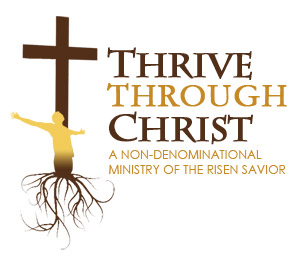
”1 Truly my soul silently waits for God;
Psalm 62:1
From Him comes my salvation.”
Silence…
Good or bad?
It can be both, as silence strikes at the heart of many relationships and families in the way of the silent treatment.
This passive-aggressive behavior, often used to express anger or disapproval, can be incredibly destructive. It erodes trust, fosters resentment, and creates emotional distance. While there is a time for silence, as indicated in Psalm 62:1, the silence that comes from a heart at rest in God is very different from the silence that punishes and alienates.
1. Understanding the Silent Treatment
The silent treatment is a form of emotional manipulation where one person deliberately avoids speaking to another as a way to control or hurt them. This behavior is often a response to conflict or disagreement, but instead of addressing the issue directly, the person using the silent treatment withdraws into silence. This can leave the other person feeling confused, rejected, and desperate for reconciliation.
2. The Impact on Relationships and Families
The silent treatment can have devastating effects on relationships and families. It undermines open communication, which is the cornerstone of healthy relationships. When one partner uses silence as a weapon, it prevents the resolution of conflicts and builds walls instead of bridges. Over time, this can lead to a breakdown of trust and intimacy.
In families, the silent treatment can create an environment of fear and uncertainty. Children who witness or experience this behavior may learn to use silence as a coping mechanism or develop a fear of conflict. This can hinder their ability to form healthy relationships later in life.
3. The Biblical Perspective on Silence
Silence itself is not inherently negative. Psalm 62:1 says, “Truly my soul silently waits for God; From Him comes my salvation.” This verse highlights a type of silence that is peaceful and restorative. It is a silence rooted in trust and faith in God, where our souls find rest and salvation. This silence is beneficial and necessary for spiritual growth and reflection.
However, the silence that comes from the silent treatment is vastly different. It is a silence that speaks of hurt, anger, and a desire to control or punish. This type of silence is not in line with the teachings of the Bible. Ephesians 4:26-27 advises us, “In your anger do not sin: Do not let the sun go down while you are still angry, and do not give the devil a foothold.” This scripture encourages us to resolve our conflicts quickly and not let anger fester, which is the exact opposite of what the silent treatment does.
4. Breaking the Cycle of Silence
To break the cycle of the silent treatment, we must first recognize its presence and understand its damaging effects. Here are some steps to overcome this destructive behavior:
- Self-Reflection: Examine your own behavior and motivations. Are you using silence as a way to control or punish others? Recognizing this is the first step toward change.
- Open Communication: Make a commitment to communicate openly and honestly. Address conflicts directly and express your feelings without resorting to silence.
- Seek Forgiveness: If you have used the silent treatment against someone, seek their forgiveness. Acknowledge the hurt you have caused and express a desire to change.
- Set Boundaries: Establish healthy boundaries in your relationships. Let others know that the silent treatment is not acceptable and that open communication is essential.
- Rest in God: Embrace the silence that Psalm 62:1 speaks of. Find your rest and peace in God, allowing His presence to fill your heart and guide your interactions with others.
The silent treatment is a destructive behavior that undermines relationships and families. While there is a place for silence in our spiritual lives, as Psalm 62:1 teaches us, it should be a silence that reflects peace, trust, and rest in God. Let us strive to communicate openly and honestly, resolving conflicts with love and understanding. By doing so, we can build stronger, healthier relationships that honor God and reflect His love.
May we all find the strength to break the cycle of silence and embrace the peace that comes from resting in God.
Were you able to glean and grow from this message so God can be further glorified and His Kingdom magnified? If so, I would love to hear from you. Follow this link to get in touch… Let’s pray!
Father God;
We thank you for your presence in our lives,
We praise you Lord for the wisdom bestowed upon Paul,
And we ask you Lord to help us find joy in your perfect plan.
Allow us to praise and love each other through faith in you Jesus,
Shield us from evil through your Word, salvation and prayer,
Guide us to abide by the truth as we spread the good news to one and all,
And lead the lost to You.
God we pray that you will continue to bless us,
To bless our lives and fill us with hope.
We ask you Lord to guide our footsteps and lead us to the way everlasting,
Through faith in you Lord we seek salvation and our place with you in Heaven
According to your ways, your everlasting wisdom and strength.
May your will be done, here on Earth and through the vast Universe,
May our hearts be filled with your everlasting love and grace.
Praises to You God, Amen!
This message was written by Daniel St.Pierre
